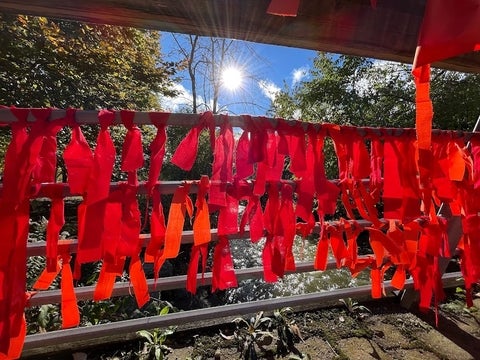Reflections from Treaties Recognition Week at Waterloo
Written by: Joy Braga
Today marks the last day of Treaties Recognition Week 2021. The Office of Indigenous Relations would like to thank everyone who attended the events that took place this week and dedicated time to learn more about the significance of treaty rights, relationships, and their relevance today.
Treaties are a foundational part of Canadian society. All people, both Indigenous and non-Indigenous, have treaty rights and responsibilities. We are all treaty people. These agreements provide a foundation for living together and sharing the land that Indigenous Peoples traditionally occupied. They also lay the groundwork for continued cooperation and partnership as we move forward together to advance reconciliation in Canada.
To achieve lasting reconciliation with First Nations, Inuit, and Métis peoples, it is key that we honour the treaty relationship and negotiate new treaties based on the recognition of rights, respect, cooperation, and partnership.
Although the week is over, it is important to remember that treaties are more than events and they are relevant every week of the year, not only during the first week of November. The Office of Indigenous Relations encourages all members of the Waterloo campus community and beyond to continue learning about the land we live and work on, and the importance of treaty rights and relationships. To support you in your learning journey, the Office of Indigenous Relations prepared an Information and Resource Guide for Treaties Recognition Week 2021 (PDF).
Treaties Recognition Week in Review
This year, the Office of Indigenous Relations launched a new Knowledge Guide Series, focused on Phil Monture’s lecture, Treaties from a First Nation Perspective. There are five parts to this series, each containing a Knowledge Guide and video clip that explores the historical and ongoing significance of treaties, particularly the Haldimand Treaty.

Bridge: Honouring the Lives of Missing and Murdered Indigenous Women, Girls and Two Spirit People
On Wednesday, November 3, there was an Opening Ceremony and Fire for the Bridge: Honouring Lives of Missing and Murdered Indigenous Women, Girls, and Two Spirit People. The Bridge is an annual installation for 16 Days of Activism Against Gender-Based Violence at the University of Waterloo. The installation is a space for all University community members to learn about the crisis as they reflect upon their responsibilities, write a name on red fabric, and tie it to the bridge between Environment 3 and St. Paul's University College. This year, orange fabric was included with the red in remembrance of the lives of the children and youth who perished at the hands of institutional violence at residential schools.
Everyone is welcome to participate in the Bridge's closing ceremony on Friday, November 19 at 1:00pm
Learn more about The Bridge Installation.
The Office of Indigenous Relations also hosted a free, virtual community screening of the acclaimed film, Trick or Treaty?, directed by Alanis Obomsawin. This screening was followed by a discussion with Robin Stadelbauer, Indigenous Relations Coordinator and Professor Susan Roy. The film focuses on Treaty No. 9 and the often-contradictory interpretations of treaties between First Nations and the Crown, powerfully portraying one community’s attempts to enforce their treaty rights and protect their lands. Learn more about the film Trick or Treaty? and director, Alanis Obomsawin.
For more information about these events and others hosted by Ontario’s Ministry of Indigenous Affairs, visit the Treaties Recognition Week webpage.